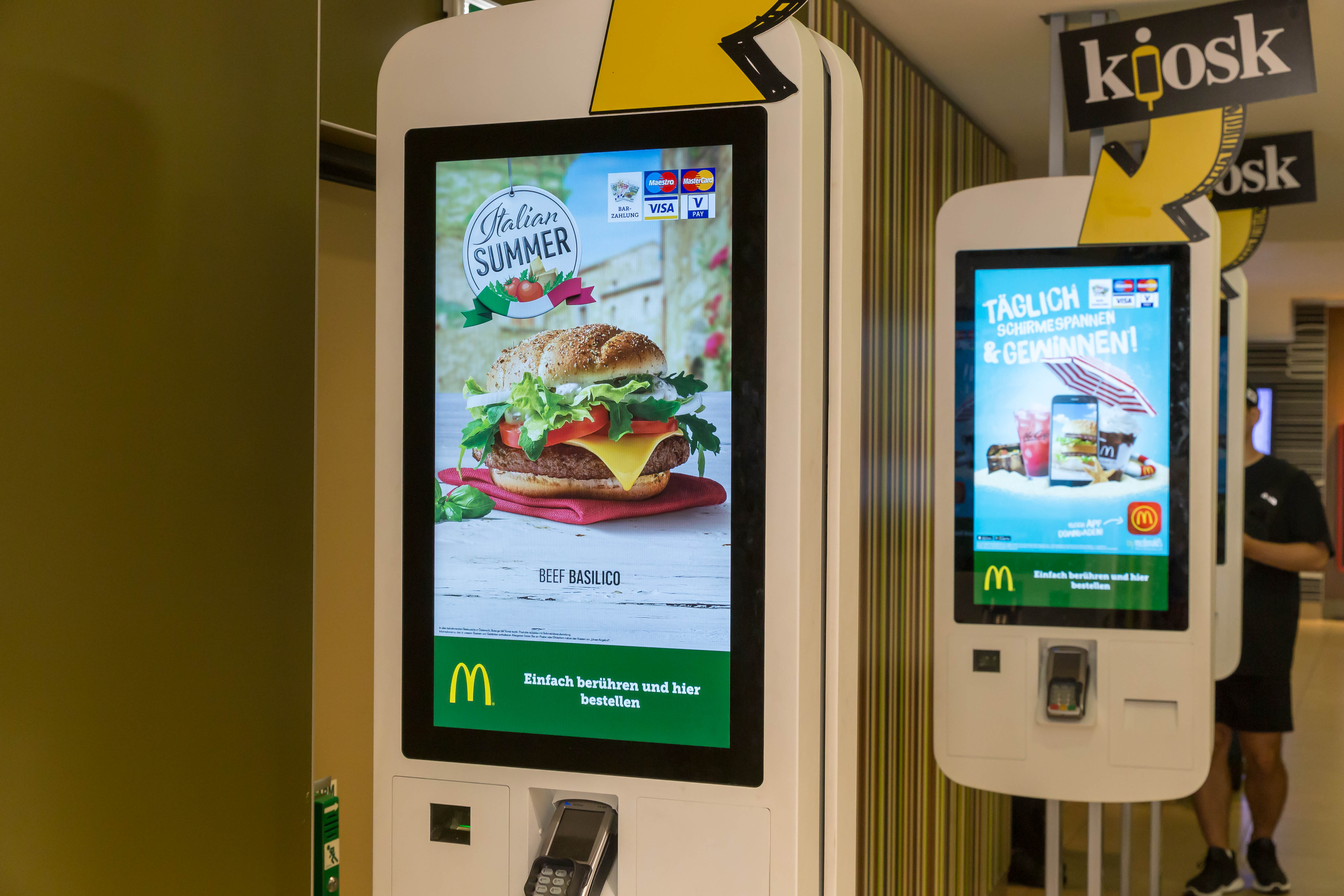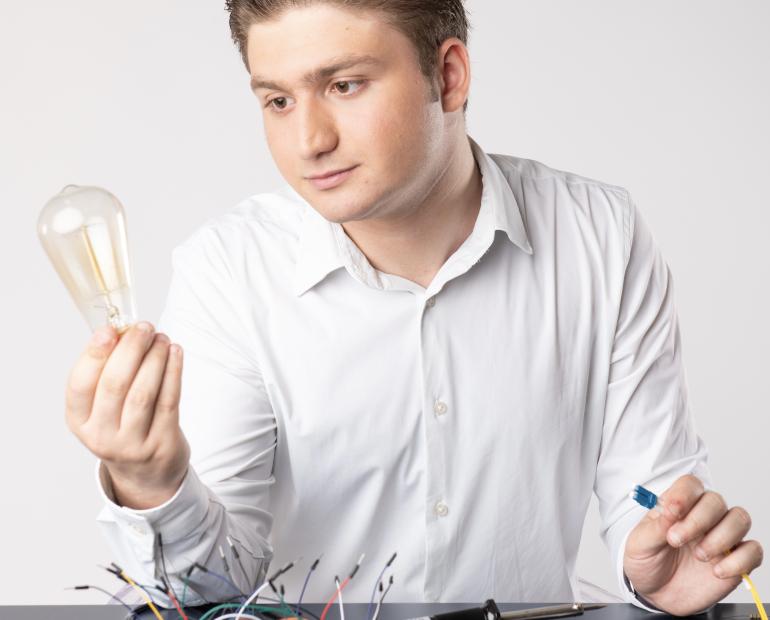
Do you know what a kiosk is? You may not be familiar with the name, but you've probably used them a lot.
A Kiosk is a touchscreen information delivery system installed in public places. And we're using it in many fast food restaurants, banks, hospitals, etc. If you check the introduction rate of kiosks in one of the top three fast-food restaurants in Korea, more than 60 percent of stores have already introduced kiosks, and the increase rate is steep. The reason why we use kiosks so much is because it is convenient, but I think we should stop using them.
First, it's hard for people with disabilities to use. Most kiosks do not make sounds and are only visible on the screen. At least 60% of the kiosks in the national institutions have sounds or braille for disabled people. But most private kiosks don't have that kind of consideration. So blind people say it's like touching a glass wall when they use them.
And most of them order a menu they don't want or give up ordering. Also, kiosks are too high for people in wheelchairs to use. If they look at the kiosk from below, the angle on the screen is not right so they can not see screen well. And they can't press the screen above. So at this rate, the unmanned society is going to be a fear for people with disabilities.
Second, we're losing jobs. Companies have recklessly introduced and used kiosks. Using kiosks eliminates the need for ordering staff. When I went to a movie theater, I could buy a movie ticket only using kiosks instead of booking through the staff. And there were just 2 staff members in a big theater. Just looking at my experience, kiosks will reduce jobs and eventually lead to a recession.
Third, the digital gap is widening. "It's not easy to intuitively figure out how to use it to older people, who had little or no opportunity to become familiar with the digital environment in their social lives," said a researcher at the Institute for Information and Communication Policy.
In fact, Lotteria Jonggak, near Topgol Park, has a large number of elderly customers. The kiosk need at least nine touch-ups to move on to the payment screen, which makes them uncomfortable. Also, small letters that are difficult to read, foreign languages that they don't know, and systems that can be initialized when time passes are really difficult for the elderly.
Of course, using kiosks can reduce the amount of staff taking orders, but hiring more employees instead of using kiosks can help the economy grow by creating jobs while keeping pace.
Also, kiosks make ordering easier for timid people who don't like to talk to other people. But people who really need help with it don't get help. In fact, when you're buying jeans from Rap OneOwon, you can choose the ones you want with tablet PC and pay with your card.
When the payment is complete, a box of jeans wrapped in a hole in the wall will come down like a vending machine. However, it was difficult for someone to find the pants he wanted, and even if you had questions, it is difficult to solve them. So while kiosks may be able to solve the discomfort of the timid, it creates other difficulties and creates a disconnect from the larger members of society.
For these reasons, I thought the disadvantage was greater than the advantage of kiosk, an unmanned order system. So I think we should reduce the use of kiosks. However, rather than indiscriminately using kiosks in order to keep the information age, I hope that the law should be established correctly and that machines should be developed that can care for the disabled and the elderly.






